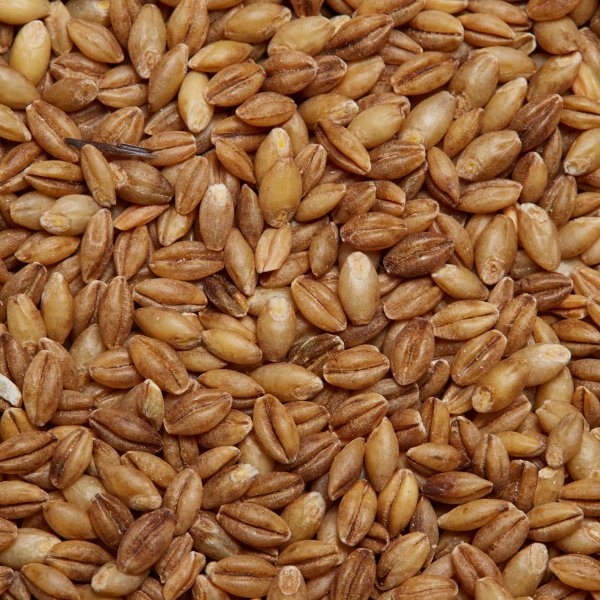<!-- wp:gutenberg-custom-blocks/featured-media {"id":"3725246","url":"https://api.time.com/wp-content/uploads/2015/02/time-50-healthiest-foods-eggs-01.jpg","caption":"","credit":"Danny Kim for TIME","mediaSize":"medium-jw","playlistId":"WuCccsVR","goJwPlayer":true} -->

<!-- /wp:gutenberg-custom-blocks/featured-media --><!-- wp:paragraph -->
It seems like every week a new study comes out either against or in favor of “the most important meal of the day.” But while the should-you-or-shouldn’t-you debate rages on among nutrition scientists, those of us who opt to eat when we rise are always on the lookout for healthy breakfast ideas that fit their weekday schedule.
Weight Loss Guide
<!-- /wp:paragraph --><!-- wp:paragraph -->
The simplest answer to that question: Avoid the stuff most Americans reach for. People eat a lot of breakfast cereal and bagels and breads, all of which are all loaded with refined carbohydrates, says Douglas Paddon-Jones, a professor of nutrition at the University of Texas Medical Branch.
<!-- /wp:paragraph --><!-- wp:paragraph -->
Studies have consistently shown diets rich in refined carbs are bad news for your heart and waistline. But thanks in part to controversial government nutrition guidelines that, as recently as the early 2000s, advised people to eat more grain-based foods than fruits or vegetables, refined carbs have hijacked our morning menus.
<!-- /wp:paragraph --><!-- wp:paragraph -->
Judging by what you’ll find to eat at most coffee shops, our refined-carb craze is hard to kill. Breakfasters looking for healthy options must fend for themselves.
<!-- /wp:paragraph --><!-- wp:paragraph -->
While cutting back on refined grains is a good start, the components of a healthy morning meal will vary depending on your age and diet restrictions.
<!-- /wp:paragraph --><!-- wp:paragraph -->
Here, nutrition experts provide options for every type of eater.
<!-- /wp:paragraph --><!-- wp:heading -->
For office-bound adults
<!-- /wp:heading --><!-- wp:paragraph -->
Go for “whole grains, nuts, and fruit with a bit of yogurt,” suggests Dr. Walter Willett, chair of nutrition at Harvard School of Public Health. “This combination will improve blood cholesterol levels and reduce risks of heart disease and diabetes, and probably some forms of cancer.” Combine a modest helping of whole oat groats—not milled oatmeal that’s been stripped of its germ and bran—with small portions of heart-healthy berries, walnuts, and full-fat yogurt for a quick breakfast that will keep you full all morning.
<!-- /wp:paragraph --><!-- wp:heading -->
If you’re the type who squeezes in a long run or intense lift before work each day
<!-- /wp:heading --><!-- wp:paragraph -->
Willett’s breakfast menu is still a good one. But you’re going to want to add extra protein to support muscle recovery and synthesis, says Stuart Phillips, Ph.D., a professor of exercise and nutrition science at Canada’s McMaster University. Phillips mentions eggs and Greek yogurt as healthy protein sources. (Yes, eggs are off your doctor’s naughty list.)
<!-- /wp:paragraph --><!-- wp:heading -->
If you’re trying to lose weight
<!-- /wp:heading --><!-- wp:paragraph -->
You’ll want to include healthy fats with your morning meal, says Dr. David Ludwig, a professor of nutrition at Harvard. By quelling hunger and switching off those metabolic processes that fuel fat storage, foods like avocados, nuts and nut butters, olive oil, full-fat dairy, and fatty fish like salmon are your allies in the fight against obesity, he says.
<!-- /wp:paragraph --><!-- wp:paragraph -->
Combine them with some fruit and some protein for a healthy, filling start to your day. One menu idea from Ludwig’s book Always Hungry?: A two-egg spinach omelet cooked in olive oil and topped with a little cheddar cheese. Serve with a cup of fruit and half a cup of plain, whole-milk Greek yogurt.
<!-- /wp:paragraph --><!-- wp:heading -->
If you’re vegetarian
<!-- /wp:heading --><!-- wp:paragraph -->
Drink your greens. “A breakfast smoothie made with leafy greens is the ideal way to fit in some of the most nutrient-dense foods on the planet,” says Julieanna Hever, a registered dietician and author of The Vegiterranean Diet. Along with hefty amounts of kale, spinach, and other greens, add some berries, seeds, and milk (hemp, almond, cow’s) to your blender for a complete and portable morning meal.
<!-- /wp:paragraph --><!-- wp:heading -->
If you’re vegan
<!-- /wp:heading --><!-- wp:paragraph -->
Try a slice of sprouted-grain toast with half of a smashed avocado or hummus. “The sprouted bread is filled with fiber and B vitamins”—which support digestion and cell health—“while the spreads provide wholesome fats and proteins,” Hever says.
<!-- /wp:paragraph --><!-- wp:heading -->
If you’re older
<!-- /wp:heading --><!-- wp:paragraph -->
Pay attention to breakfast. As your body ages, muscle wasting and weakness become significant concerns, says Valter Longo, a professor of gerontology and biology at the University of Southern California. To combat frailty and loss of muscle—both of which are linked with higher rates of mortality—Longo recommends plenty of protein at mealtimes.
<!-- /wp:paragraph --><!-- wp:paragraph -->
Combine one or two eggs with black beans and yogurt or milk.
<!-- /wp:paragraph --><!-- wp:heading -->
If you want to eat a lot of protein but you avoid animal foods
<!-- /wp:heading --><!-- wp:paragraph -->
Swap out the steak, eggs, and dairy for a mixture of legumes and whole grains, which together provide all the essential protein amino acids your body needs, says Winston Craig, chair of nutrition at Andrews University. Fiber- and antioxidant-rich fruit is also a worthy addition to your breakfast plate, Longo says.
<!-- /wp:paragraph --><!-- wp:heading -->
If you have kids
<!-- /wp:heading --><!-- wp:paragraph -->
Feed them breakfast. Multiple studies have shown breakfast helps improve kids’ alertness and cognitive function. And you don’t have to shop for special foods for your tykes or teens. “Steer away from the idea of toddler foods versus adult foods,” says Jill Castle, RDN, co-author of Fearless Feeding: How to Raise Healthy Eaters from High Chair to High School. Whether your kid is five or 15, Castle recommends a mixture of protein, vegetables, fruit, and healthy whole grains.
<!-- /wp:paragraph --><!-- wp:paragraph -->
Scrambled or hard-boiled eggs with whole-grain toast and fruit is one good option, she says. Another: Blend Greek yogurt with fruit, green vegetables, and water or milk. Castle is also a fan of adding healthy fats like avocado, nuts, seeds, and olive oil to kids’ breakfasts.
<!-- /wp:paragraph --><!-- wp:heading -->
No matter who you are
<!-- /wp:heading --><!-- wp:paragraph -->
Drink up. Studies show most adults and roughly half of all kids aren’t adequately hydrated, soater is always a healthy choice. But morning favorites like coffee and tea are also good options, experts say. Coffee may help you live longer, and tea can hydrate you better than water. Green tea has also been tied to lower rates of cancer, obesity, and age-related bone loss.
<!-- /wp:paragraph --><!-- wp:paragraph -->
While a small glass of fresh-squeezed orange juice provides vitamin C and other beneficial nutrients, fruit juices—yes, even the 100% varieties—tend to be loaded with sugar. Some bottled fruit juices actually pack more of the sweet stuff than soda. So you may be better off reserving that glass of OJ for your weekend brunch.
<!-- /wp:paragraph -->
